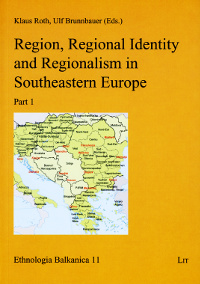Nationalism and the Re-Invention of Early-Modern Identities in the Ottoman-Habsburg Borderlands
Nationalism and the Re-Invention of Early-Modern Identities in the Ottoman-Habsburg Borderlands
Author(s): Claire NortonSubject(s): Anthropology
Published by: LIT Verlag
Keywords: history and identity; siege of Nagykanizsa; Hungary; nationalism;
Summary/Abstract: This article will explore how identity is reflected and contested in various inscriptions of the siege of Nagykanizsa castle in today’s Hungary. It will challenge the view that the early modern Habsburg-Ottoman frontier was characterised by distinct and antagonistic communities defined along ethno-confessional or linguistic fault-lines. Instead it will argue that such a position arises from the pervasive influence of the essentialist understanding of nationalism and the dominance of the nation-state interpretative frame as a means of apprehending and constructing the past. It will present evidence that early modern communities inhabiting this border region articulated and performed a multiplicity of overlapping and often conflicting identities more often centred around the fulcrums of class, occupation, local loyalties to commanders or elites and specific regional circumstances and customs. Then it will look in more detail at Ottoman and modern Turkish inscriptions of the sieges of Nagykanizsa and consider how and why these narratives changed, and earlier identities were forgotten, as they were re-inscribed within a nation state interpretative framework by nineteenth-century Ottoman, and twentieth-century Turkish scholars.
Journal: Ethnologia Balkanica
- Issue Year: 2007
- Issue No: 11
- Page Range: 79-101
- Page Count: 23
- Language: English
- Content File-PDF

